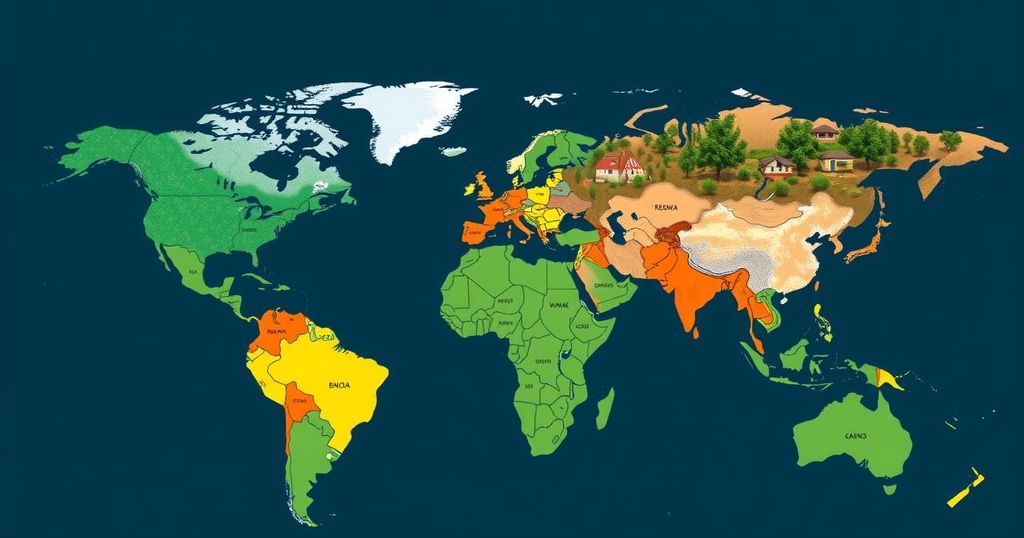Addressing Climate Change: Wealthy Nations Compensate Poorer Countries for Damage

Richer countries are beginning to compensate poorer nations for damages caused by climate change-related disasters, exemplified by the $750 aid received by a Malawi farmer after Cyclone Freddy. Approximately $720 million has been pledged to the loss and damage fund, but experts warn it is insufficient given the increasing severity of climate impacts. Negotiations at COP29 in Baku are focusing on funding allocations and responsibilities of wealthier nations to address these critical issues.
Natural disasters such as Cyclone Freddy have intensified the plight of low-income nations like Malawi, where local subsistence farmer Christopher Bingala lost his home and livelihood. His recovery was aided by approximately $750 received as part of a new funding initiative, termed “loss and damage” compensation. This mechanism provides financial relief to poorer nations that contribute minimally to climate change yet endure severe impacts from extreme weather events. So far, wealthy nations have pledged nearly $720 million to this fund, but experts assert that such commitments will be insufficient to address the escalating climate-related challenges.
As discussions unfold at COP29 in Baku, negotiators are working to solidify funding agreements and determine the allocation process for developing nations. Philip Davis, Prime Minister of the Bahamas, emphasizes the responsibilities of economically advanced countries to compensate for their substantial emissions, which fuel climate change. The destruction caused by Cyclone Freddy displaced around 650,000 individuals in Malawi, demonstrating the urgent need for effective disaster response and recovery strategies.
The aim of the loss and damage fund is not only to facilitate immediate disaster recovery but also to address other potential climate displacement issues, such as relocating communities facing sea-level rise. The current funding landscape, however, is in its nascent stages, and many low-income countries argue it should encompass a broader range of damages beyond natural disaster recovery.
In conclusion, while initial steps are being taken to allocate funds for climate change-related damages in poorer countries, the commitment from wealthier nations must grow substantially to meet the escalating demands posed by climate vulnerabilities. As the consequences of climate change unfold globally, a collaborative approach becomes imperative to safeguard the most affected communities.
In recent years, the effects of climate change have disproportionately affected low-income countries, which often lack the means to recover from extreme weather events. The creation of the loss and damage fund marks a significant shift in international climate finance, aiming to provide compensation for climate-related disasters suffered by developing nations. Wealthy countries, which have historically contributed more to greenhouse gas emissions, are being urged to take on greater responsibility for the damages incurred by poorer nations. This initiative seeks to not only address immediate recovery needs but also support adaptation and resilience strategies in the face of ongoing climate change impacts.
The establishment of the loss and damage fund represents a critical development in international climate finance, aiming to support low-income nations facing the brunt of climate-related disasters. While initial commitments from wealthier countries signal progress, it is evident that far more substantial contributions will be essential to adequately support affected communities and address escalating climate challenges. A collaborative and responsible approach is crucial for fostering resilience and mitigating future risks.
Original Source: www.southcarolinapublicradio.org






